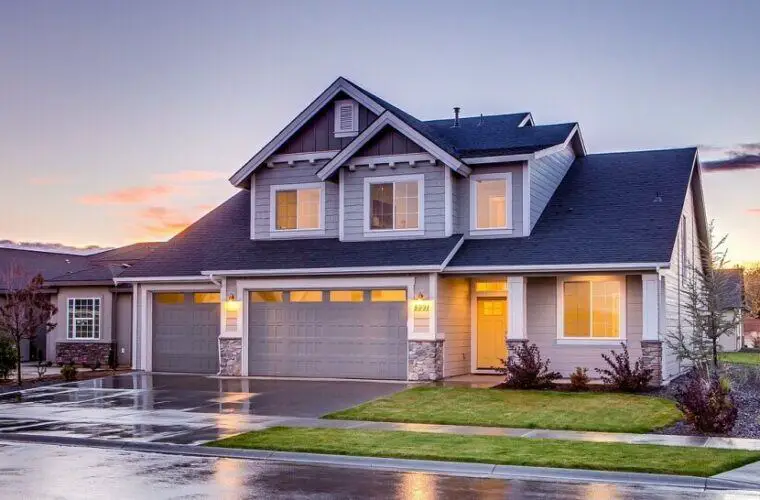A popular saying goes: “a house isn’t a dream, it’s a nightmare.” It may not be entirely accurate, but there’s some truth behind it. After all, owning a home can be quite expensive. From maintenance costs to property taxes, your bank account will take a hit in more ways than one. However, you might still find yourself asking: should I rent or buy? Well, let me tell you, it’s not as simple of an answer as you think. There are pros and cons on both sides. So before making any decisions, we’re going to break down every single thing you need to know about renting vs. buying a house.
Renting A House Vs. Buying A Home: The Pros And Cons
While there are many things to consider when choosing between renting and buying a home, here are the main factors to keep in mind.
Pros Of Renting
* Lower Upfront Costs: When compared to buying, renting typically requires much less upfront cash. This means you won’t have to worry about paying thousands of dollars just to move into your new home. Instead, you’ll only need first month’s rent plus security deposit (which varies depending on landlord).
* Flexibility: If you decide to move somewhere else after signing lease agreement, then it’s easy enough to simply give notice and pack up your bags without worrying about selling anything! This makes renting great if you don’t plan on staying long term, or even want the freedom to travel more often.
* No Maintenance Headaches: Another benefit of renting is that you won’t ever have to deal with repairs like leaky pipes, broken appliances etc., since these responsibilities fall upon the shoulders of your landlord(s).
Cons Of Renting
* Lack Of Ownership: One major con of renting is that you never actually own the place where you live. As such, if something breaks or needs repair then it’s up to tenant to fix it themselves, which could end being very costly over time.
* Limited Customization Options: Since you don’t technically “own” the space either, this means no painting walls, installing shelves or doing any other renovations without getting permission from landlords first!
Pros Of Buying A Home
* Building Equity: With each mortgage payment made towards principal balance, you build equity which acts as collateral against future loans taken out against property value. This gives financial security because if anything happens financially speaking – job loss, medical issues, etc. – then having built-up equity can help protect against foreclosure proceedings.
* Potential For Appreciation: Real estate tends to appreciate over time, so even though prices may fluctuate due to market conditions, there’s always potential for profit if you hold onto your investment long enough.
* Tax Benefits: Depending on where you live, homeowners can qualify for certain tax benefits including deductions related to interest paid during mortgage application process. Additionally, state and local governments offer programs designed specifically to assist low income families with purchasing homes through subsidized loan options.
Cons Of Buying A Home
* Higher Upfront Costs: While renting requires little up front capital, buying a home comes with significant expenses associated with closing costs and fees charged by lenders; plus additional funds needed at settlement table such as inspections/appraisals & title search fees. These extra charges add up quickly so make sure you factor them into budget before committing to purchase!
* Maintenance Responsibility: Unlike renting where maintenance headaches are handled by landlord(s), home ownership puts all responsibility squarely on owner’s shoulders. Not only does this mean dealing with unexpected problems like burst pipes or broken appliances, but also regular tasks such as lawn mowing & gutter cleaning too.
Pros Of Buying A Home
* Building Equity – When you pay down the mortgage on a home you own, you build equity in your property. This can be used as collateral for other loans or even sold later if needed.
*Potential Tax Benefits – If you itemize deductions on your tax return, you may qualify for certain tax benefits such as the Mortgage Interest Deduction which allows you to deduct interest paid on your mortgage up to $1 million. You also might qualify for property taxes paid, too.
* Long-Term Appreciation – Historically speaking, real estate has increased in value over time. It’s possible that this trend will continue in the future. However, there are no guarantees and market conditions change frequently.
*Customization – Once you purchase a home, you have complete control over what changes you make to the property. Whether you want to paint the walls, install new fixtures or renovate the kitchen, these changes are entirely up to you.
The Verdict On Whether To Rent Or Buy Your Next Home
Now that you understand the pros and cons of renting versus buying, it’s important to assess your personal situation before coming to a decision. Here are three questions that will help determine whether renting or buying is right for you.
1) What Is My Budget Like?
If you don’t have enough saved up for down payment yet still want access to a bigger living space, then maybe renting is better option until you get finances together. Alternatively, if you do have sufficient savings set aside already, then perhaps buying makes sense now instead of waiting around hoping prices drop further in future.
2) How Long Will I Be Living Here?
If you expect to remain within same area for several years or longer, then buying might be good choice given its potential appreciation and tax benefits. But if you’re planning on moving frequently (i.e. every few months), then renting offers greater flexibility since it allows you to easily transfer leases when necessary without incurring penalties.
3) Do I Want To Build Equity Or Save Cash?
In terms of building wealth, buying is generally considered preferable option since it provides opportunity for equity growth while simultaneously offering tax benefits like mortgage interest deduction.
Conversely, renting doesn’t allow for accumulation of assets nor does it provide similar write off opportunities. Therefore, those looking to save money may find renting more appealing.
Ultimately, whether renting or buying is best depends on individual circumstances. It’s important to carefully evaluate your current situation before making a final decision so that you choose option that aligns most closely with goals and objectives for short-term financial stability as well as long-term prosperity.




